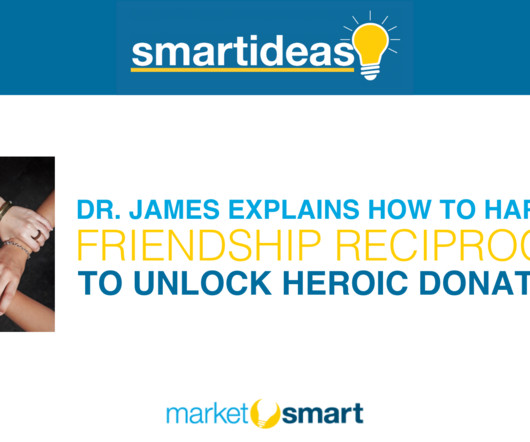Dr. James explains how to harness friendship reciprocity to unlock heroic donations
iMarketSmart
JUNE 19, 2023
Both players could agree to a “mutual insurance” pact. The simple game has an unbreakable law: Giving must be seen by partners who are able and willing to reciprocate. In the extreme game, the law still applies. It leads to natural rules for picking mutual insurance partners. Player 2 will die. So, one of them will die.












Let's personalize your content